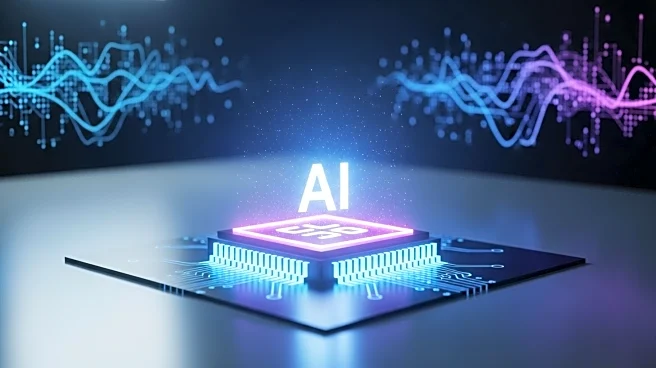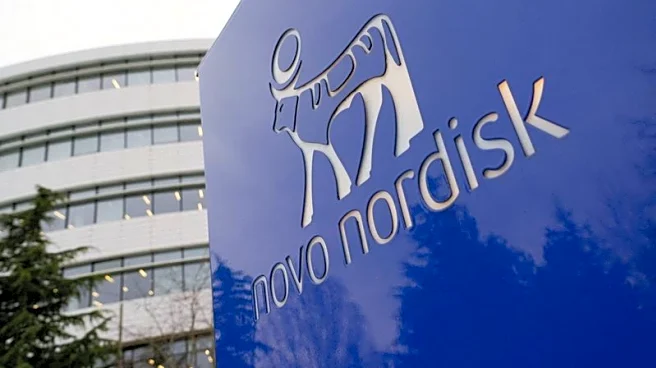What is the story about?
What's Happening?
OpenAI has announced new updates to its API, including the introduction of GPT-5 Pro, a new language model, and Sora 2, a video generation model. These updates were revealed during OpenAI's Dev Day, aimed at attracting developers to its ecosystem. GPT-5 Pro is designed to offer high accuracy and depth of reasoning, particularly appealing to developers in finance, legal, and healthcare sectors. Additionally, OpenAI has launched 'gpt-realtime mini,' a smaller, cheaper voice model that supports low-latency streaming interactions for audio and speech. Sora 2, the latest audio and video generator, offers more realistic scenes with synchronized sound and greater creative control. This model is intended for concept development, such as creating visual starting points for ads or toy concepts, as demonstrated by OpenAI's collaboration with Mattel.
Why It's Important?
The introduction of GPT-5 Pro and Sora 2 signifies OpenAI's strategic push to expand its influence in various industries by providing tools that enhance application development. GPT-5 Pro's focus on high accuracy and reasoning is crucial for sectors like finance, legal, and healthcare, where precision is paramount. The launch of Sora 2 and its integration into creative processes, such as toy design, highlights the growing role of generative AI in product development. These advancements could lead to increased efficiency and innovation in these fields, potentially reshaping industry standards and practices. OpenAI's efforts to make its models more accessible and cost-effective may also democratize AI technology, allowing smaller developers to leverage powerful tools previously out of reach.
What's Next?
OpenAI's new models are expected to foster greater collaboration and innovation within its developer ecosystem. As developers begin to integrate GPT-5 Pro and Sora 2 into their applications, there may be a surge in AI-driven solutions across various sectors. The company's partnership with Mattel could lead to further collaborations with other industries seeking to incorporate AI into their workflows. Additionally, OpenAI's focus on voice capabilities suggests a future where voice interaction becomes a primary method of engaging with AI, potentially influencing how applications are designed and used. Stakeholders in affected industries may need to adapt to these technological shifts, potentially leading to new business models and strategies.
Beyond the Headlines
The advancements in OpenAI's models could have broader implications for ethical and cultural dimensions of AI use. As AI becomes more integrated into creative processes, questions about authorship and intellectual property may arise. The ability to generate realistic audio and video content also raises concerns about misinformation and the authenticity of digital media. Furthermore, the democratization of AI tools could lead to increased competition among developers, driving innovation but also necessitating discussions on responsible AI use and regulation. These developments may prompt policymakers to consider new frameworks to address the ethical and legal challenges posed by advanced AI technologies.
















